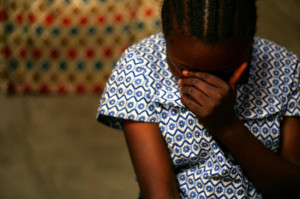In the most serious of court cases, victims are currently subjected to some of the most distressing scenes but this is now set to change.
According to the Justice Secretary Chris Grayling, young and venerable victims who have survived the most brutal of crimes will be offered the chance to avoid the court process. The procedure, which is more often than not quite upsetting and intimidating, is now being looked at. The new suggestion is that both the evidence and cross examination will be pre-recorded, saving the victim the ordeal of court.
The new scheme will dip it toes and tested in three areas- Leeds, Liverpool and Kingston-Upon-Thames, with every intention to spread it nationwide if it proves successful.
Justice Secretary Chris Grayling said:
“The particularly hostile treatment of victims and witnesses in court has nothing to do with fairness or justice.
“It is simply not right that young and vulnerable victims are forced to relive the most traumatic experience they have ever had, often for days on end, when cross-examined in court.”
With many provisions currently in place set up to help the victims and witnesses give evidence, with children being allowed to give evidence behind a screen or via video link. Also those with learning difficulties, language trouble or hearing problems can use a specialist registered intermediary.
Never the less, it is quite obvious that these measures do not go far enough. Even though judges have the power to prevent overly aggressive cross examination and character assassinations, there is a mounting amount of incidents where victims are left traumatised. For example, there is no preventive measures from how many lawyers can cross examine a witness, or the amount of times they take to the stand, as well as having to in some cases describe sexual and violent abuse.
So, working closely with the Judiciary, Her Majesty’s Courts and Tribunal Service, the Association of Chief Police Officers and the Crown Prosecution Service, the Ministry of Justice is commencing Section 28 of the Youth Justice and Criminal Evidence Act.
This will allow all children, and the most vulnerable adult, victims and witnesses to escape being studiously examined in court, in front of an audience, by recording their cross-examination away from the highly-charged court environment. This would be then included in a later trial.
It will also give those traumatised by crime the opportunity for counselling far earlier, and without the impact of having to re-live their experience all over again, as well as improving the evidence available when there is a time lag between charges being brought and a court case taking place.










